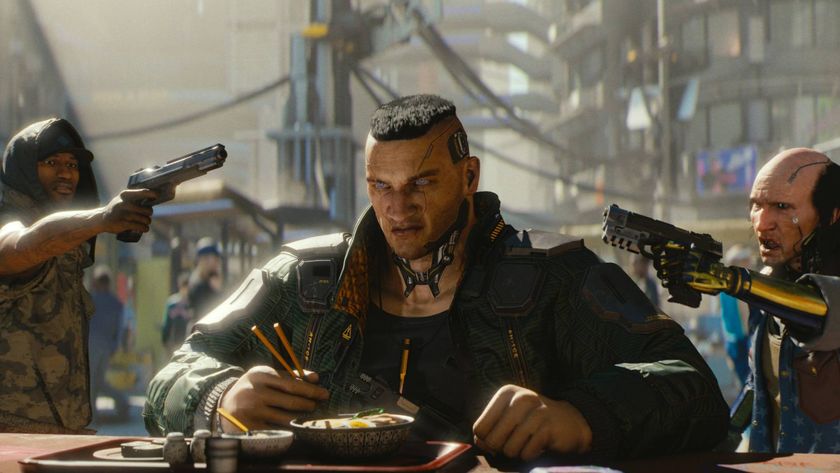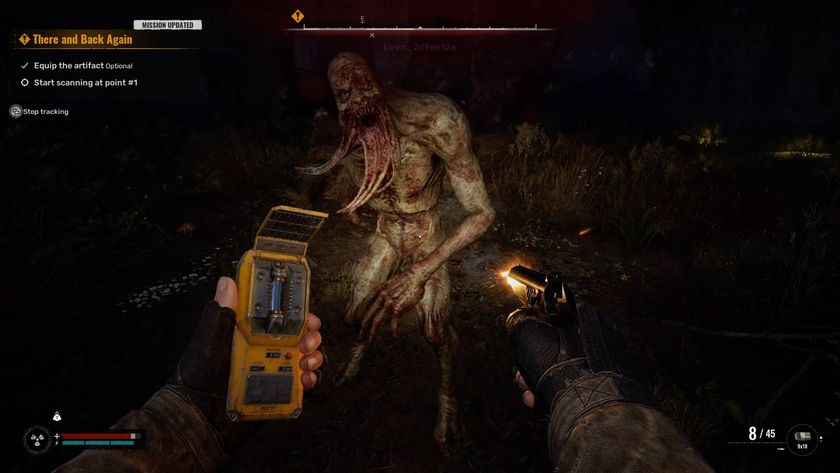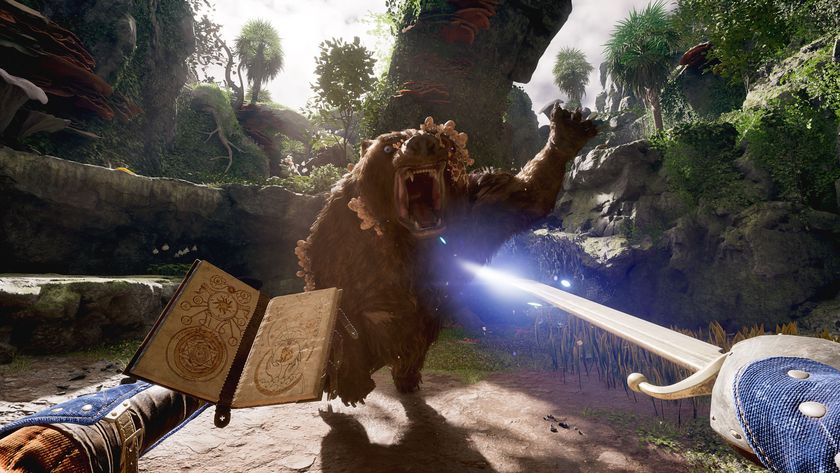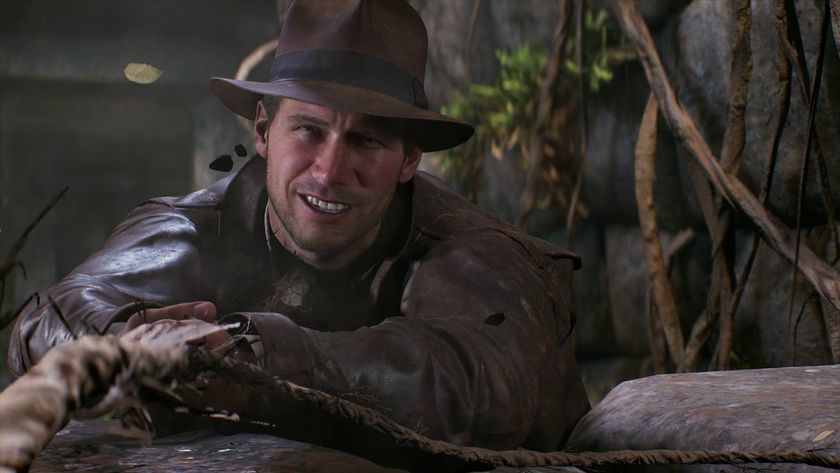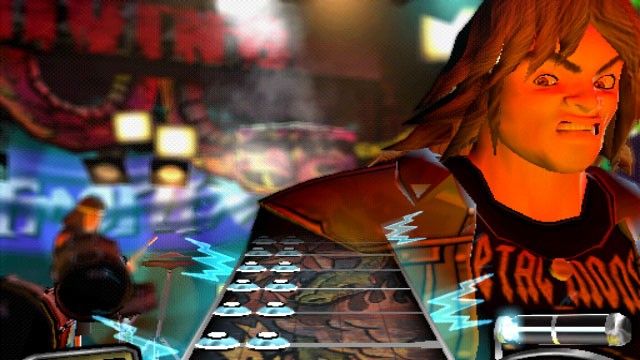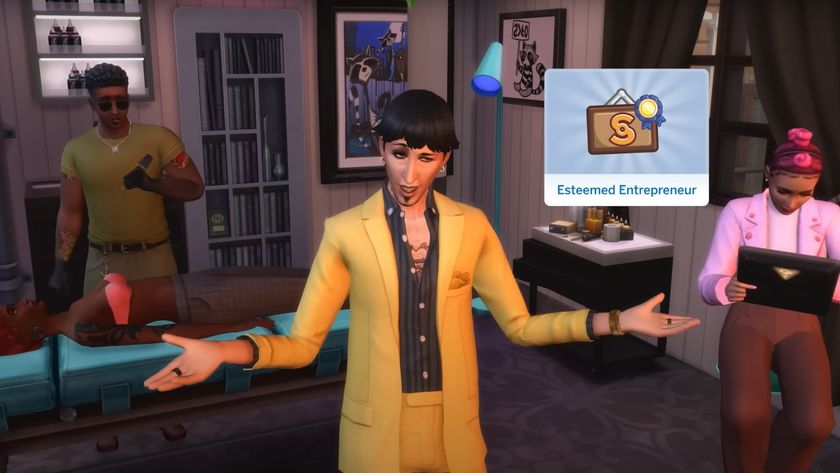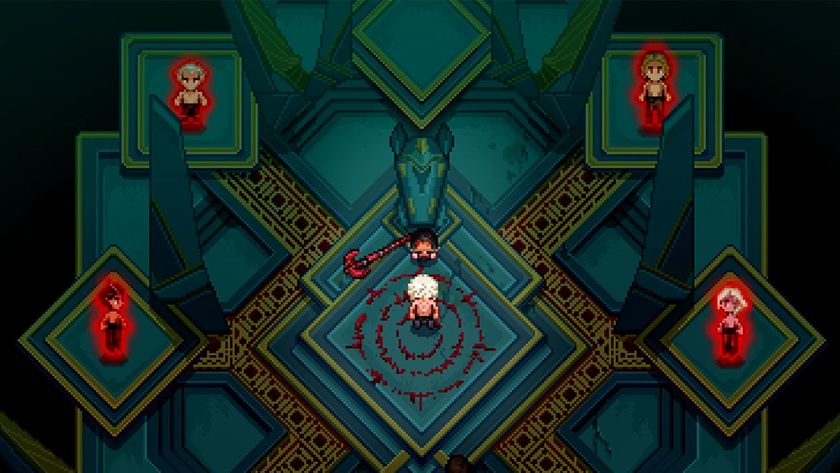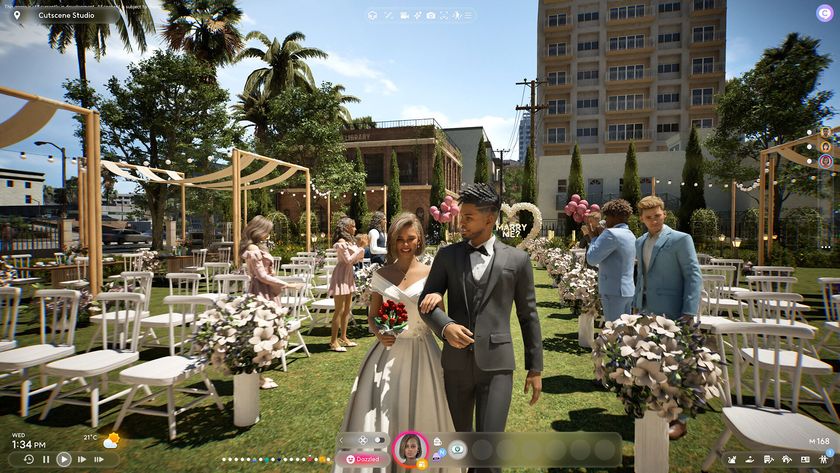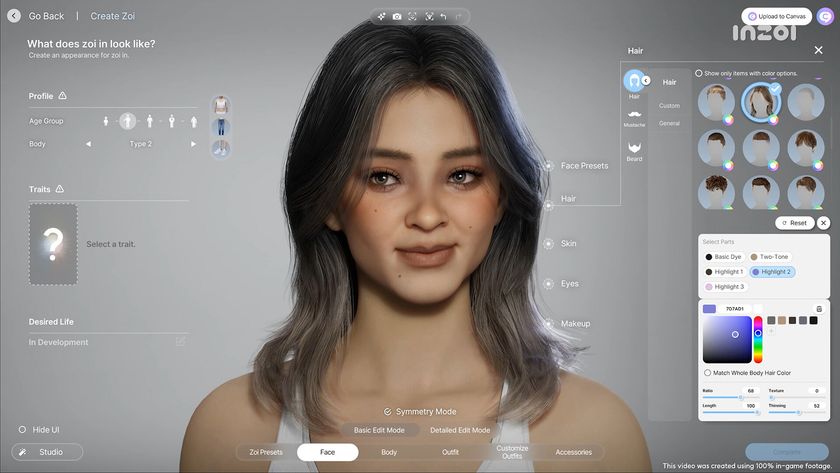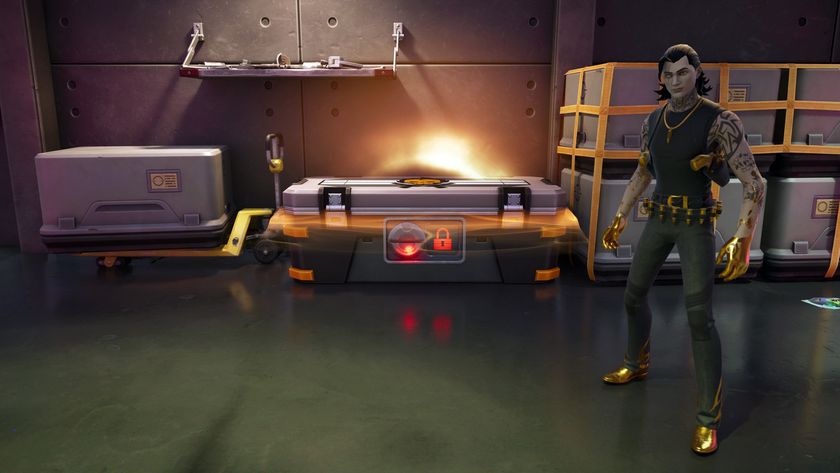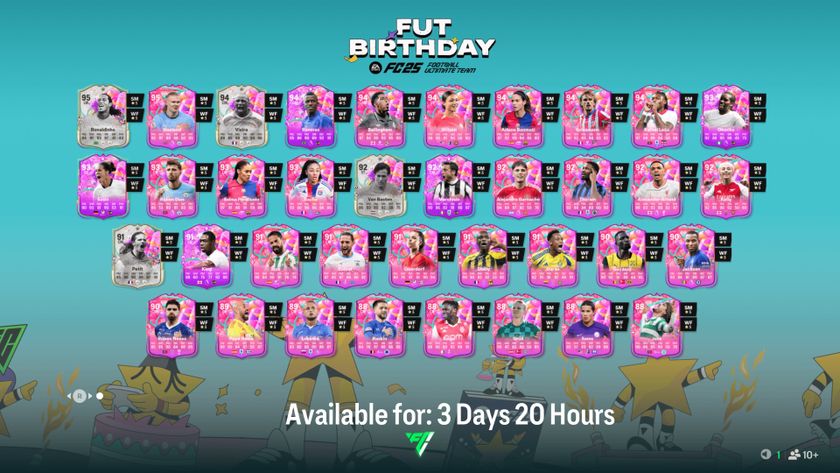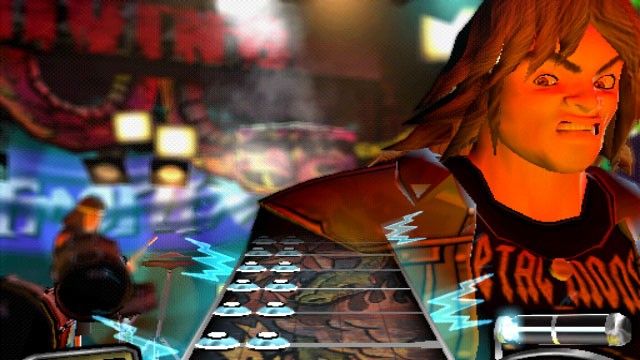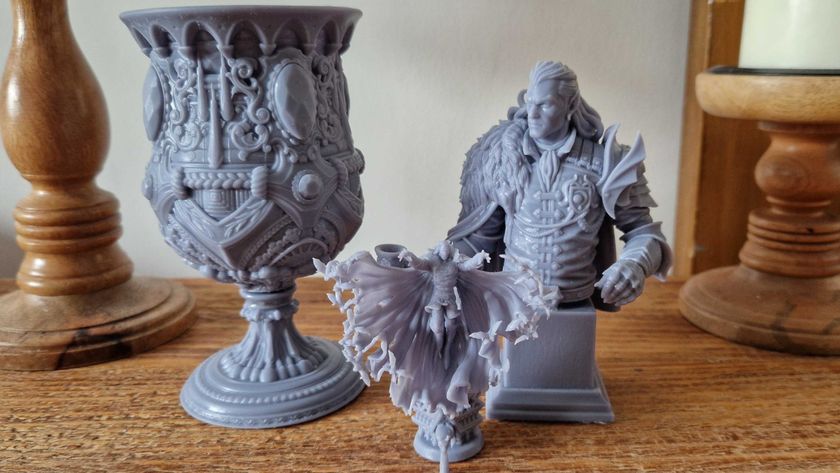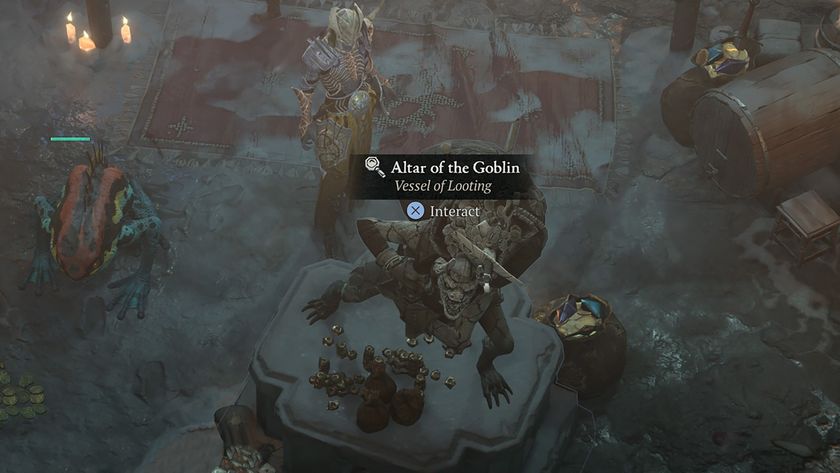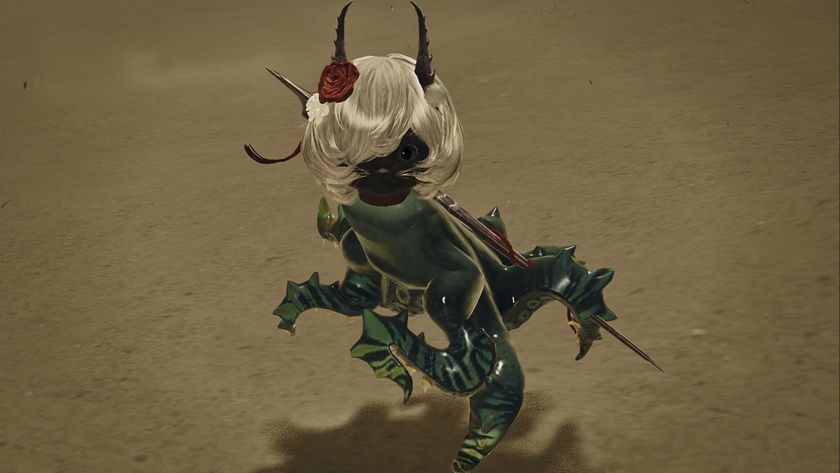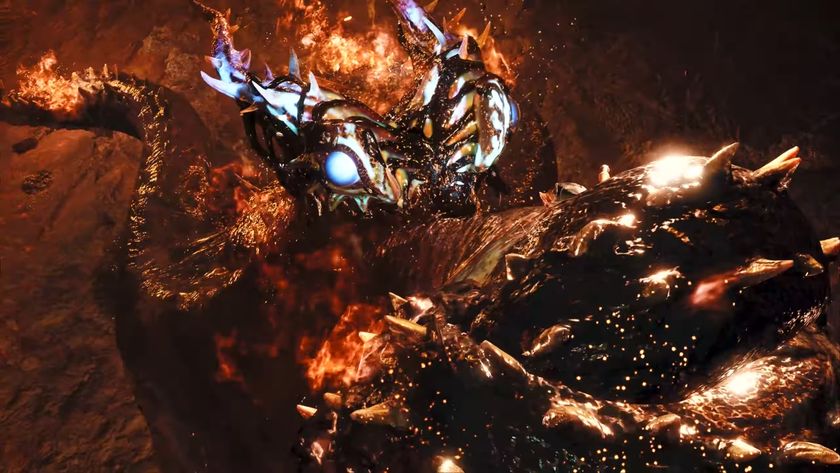10 Shadows of Doubt tips and tricks we wish we'd known before we started sleuthing
Our tricks for Shadows of Doubt make the difference between a fumbling flatfoot and sharp-eyed PI
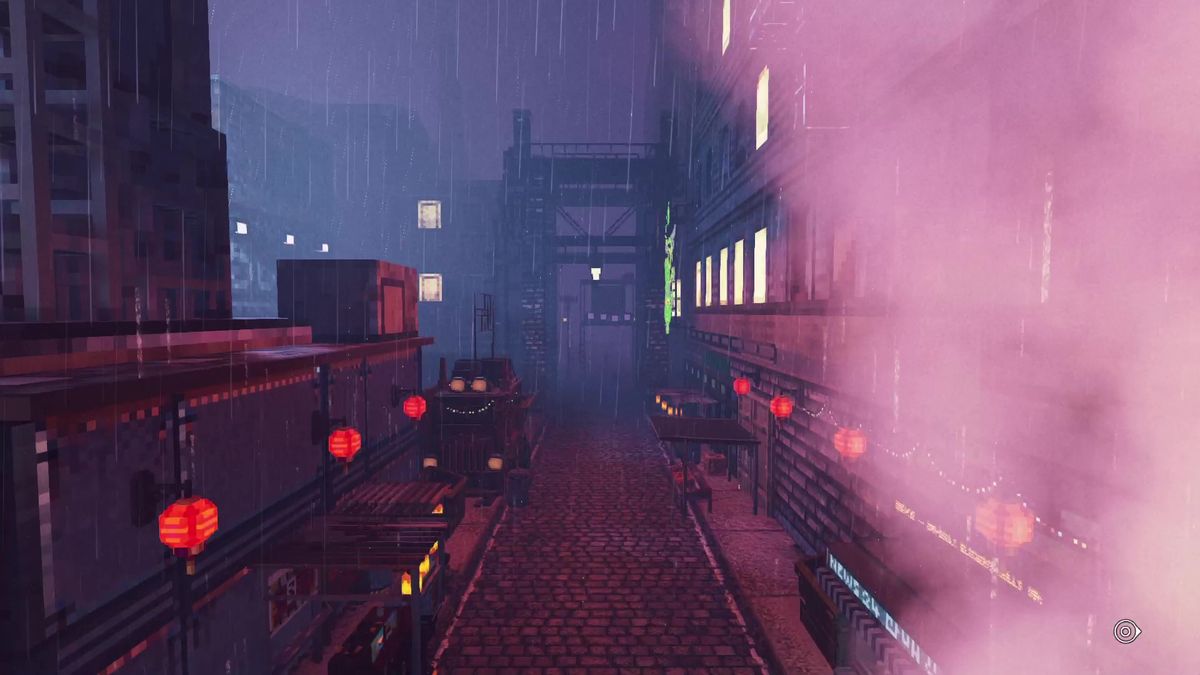
Some Shadows of Doubt tips and tricks will do a lot to help those getting started in this rain-soaked noir detective game, as there's plenty that doesn't get explained off the bat, and even more that players will effectively have to figure out for themselves. Or rather, they would have to figure it out, if we hadn't come along pre-figured and laid out all the tricks of the trade that can help you find clues, stealth around, and uncover the killers in ever more effective and efficient ways. If you want the top 10 tips for Shadows of Doubt, then these are all the things we wish we'd known before we started investigating.
1. Asking people if they've seen a suspect can be incredibly effective
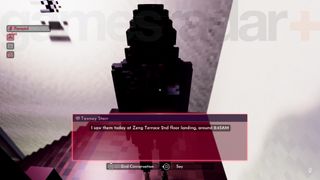
Shadows of Doubt doesn't make a big thing of this mechanic, but you can always just ask random citizens if they've seen any of the characters pinned on your evidence board, and it can be surprisingly effective. Even if they don't know them personally, they might have seen them recently and will let you know where and when. And if they do know them, such as being colleagues, they can fill you in on all kinds of useful data.
2. Paying for a guest pass is usually worth it
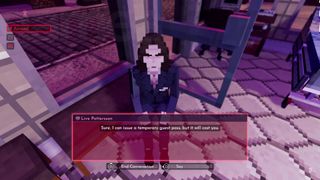
People may or may not let you into a home or business if you ask, it depends on how compliant they are, what status effects you have, and what Shadows of Doubt upgrades and SyncDisks you have installed.
If they turn you away, there's often an option to pay for a temporary guest pass, effectively allowing you to enter the building and explore freely. As long as you're not caught doing anything illegal, you're allowed to wander. I found that the low costs and high rewards for guest passes usually make it worth it, and means you don't have to worry about cameras, security guards, or installed turrets. It also allows you to search for door codes - another thing you can pay for - and get a two-for-one reward.
3. The Fingerprint Scanner also works for footprints
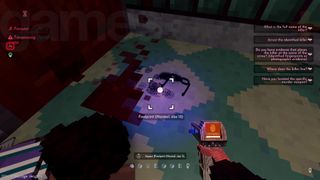
Fingerprints are a great way to identify a perpetrator, but failing that, characters also leave behind footprints - and your Fingerprint Scanner can highlight those too. Admittedly, footprints aren't wholly unique like fingerprints are, but shoe size can still help to narrow down a suspect in a pinch.
4. You don't have to ask for fingerprints if you're sly and quick
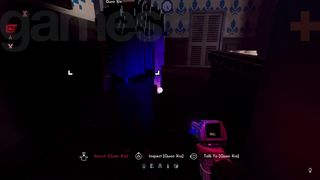
When speaking to people, you can ask for their fingerprints for your records - a question that is often rejected. Still, that doesn't mean you're at a loss - if you equip the scanner and get the angle on their hand just right, for a few seconds, you can get their prints anyway, and they won't care. The tricky bit is them remaining still for long enough, but if you follow them about, you should get your moment sooner or later.
5. Your apartment is cool, but not especially helpful
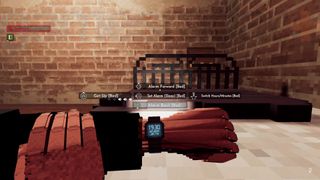
Early on you'll get a pretty grim apartment, and later on you can buy others in nicer locations, as well as outfitting them with new furniture, decorations and more besides. It's a nice feature, but almost wholly useless when it comes to the core gameplay of solving cases, a cosmetic element that simply gives you something to spend money on if you've got a lot already. Feel free to enjoy interior decorating, but if money's tight you might want to put what cash you have into finding kidnappers. That's not to say there's not useful features, but most of them - like sleeping and storage - are something your apartment can already do without needing a revamp.
6. When threatened, flee to the streets
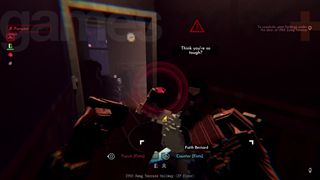
Your only recourse when threatened or when you've failed to perform a Shadows of Doubt arrest, is to either fight the enemy or run away. Fighting is tough, especially if the foe is armed or if there's multiple people, so if you don't have one of the better Shadows of Doubt guns and weapons then most of the time the best thing you can do is bolt for safety.
When that happens, your first priority should be to get to the streets, out of whatever building you're in. It's easy to lose pursuers out there, and Shadows of Doubt has an odd Wanted system wherein each building seems to be its own jurisdiction - meaning once you're on the sidewalk, your wanted level should start dropping.
7. A lot of evidence is time sensitive, so don't lose pace
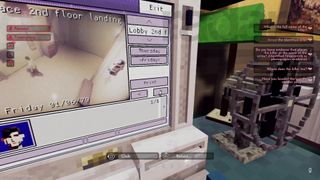
Plenty of evidence in Shadows of Doubt will disappear if you wait too long, to say nothing of cases that have literal ticking clocks, such as kidnapped hostages who will soon be executed, or important documents you'll need to find and steal.
It means you can't hang about if you want the best chance at solving things. NPCs' memories fade, fingerprints aren't permanent, and security footage can only be rewound across the previous couple of days. If you take too long or try to juggle multiple cases and jobs at a time, you're likely to start missing out on key info.
8. Check all workplace records, even if you don't think they'll help
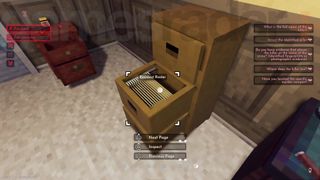
There's plenty of ways to find data about people, but workplaces tend to be goldmines of comprehensive data. Staff photos are pinned on boards, computers hold employee details, and somewhere there's likely to be a filing cabinet with all the employee records for you to flick through.
It's a good habit to check these as a rule - it's a quick way to build comprehensive character profiles, and means that if you later discover that one of them is involved, you have a strong supply of info to work from.
9. Knocking on a door doesn't always get an answer, even if somebody's home
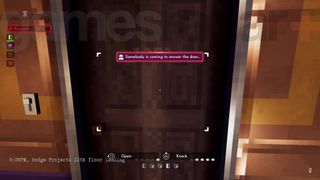
Hammering on an apartment door can often bring the person forth for a chat, but sometimes you get no answer. However, don't take this as an indicator that nobody's home and that you're free to lockpick your way inside. Apart from the risk of security cameras, NPCs that are asleep or too far away from the door won't hear you knocking, meaning you might break in and then come face to face with a startled tenant who attacks you as an intruder.
10. Keep your evidence board coherent or you'll regret it
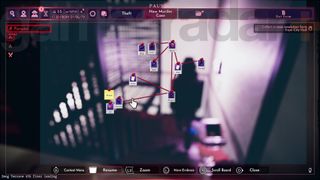
Your evidence board UI is a great way to handle all the info coming in across the course of a case, but arranging it and keeping it legible is a good habit to get into. When you have half a dozen unassigned fingerprints, you need a good way of knowing how to arrange them so you can remember why they're important and where you found them. I found that placing clues around custom sticky notes with names like "KILLER," "VICTIM," and "SUSPECT?" was easy enough, but everybody will have their own method - just make sure you stick to it, or later you'll find yourself struggling to work through all the info.
© 12DOVE. Not to be reproduced without permission
Sign up to the 12DOVE Newsletter
Weekly digests, tales from the communities you love, and more

Joel Franey is a writer, journalist, podcaster and raconteur with a Masters from Sussex University, none of which has actually equipped him for anything in real life. As a result he chooses to spend most of his time playing video games, reading old books and ingesting chemically-risky levels of caffeine. He is a firm believer that the vast majority of games would be improved by adding a grappling hook, and if they already have one, they should probably add another just to be safe. You can find old work of his at USgamer, Gfinity, Eurogamer and more besides.

